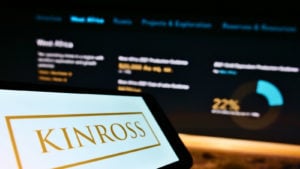However, stocks trading under $10 have their own set of risks. For example, some of these companies have very little profit or are not yet profitable. That means you’re investing in a company’s future profits. And that’s the reason these stocks carry a risk premium.
But like any category of stocks, you can find quality stocks with solid balance sheets. Even if these companies are still in the growth phase, their ability to manage this phase effectively can give you confidence that they will continue to manage future growth well. Let’s examine seven of the best stocks under $10 to consider in August 2024.
Altimmune (ALT)

It’s not unusual to find clinical-stage biotech companies trading under $10. These companies are not profitable and generally have very little revenue. That’s the case with Altimmune (NASDAQ:ALT) which is attempting to develop “innovative next-generation peptide-based therapeutics.” In layman’s terms, the company is advancing a GLP-1 drug candidate, pembidutide. The company is seeking one indication for obesity and another for metabolic-associated steatohepatitis (MASH) – more commonly known as fatty liver disease.
The GLP-1 arena is likely to get crowded. So speculative investors should be looking for a “so what” factor. In the case of Altimmune, that may come from recent results from its clinical trials that showed users were able to maintain more lean mass while cutting weight. In other words, the majority of the weight loss from pemvidutide came from fat tissue as opposed to lean mass.
As of this writing, Altimmune posted its second quarter earnings. Negative earnings per share of 35 cents was lower than the negative 34 cents that analysts expected. The company generated $5,000 of revenue for the quarter.
Lithium Americas (LAAC)

Eighteen months ago, many investors would not have thought they’d be looking at lithium stocks as some of the best stocks under $10. But as demand in the EV industry sours, the market is oversupplied, and the price of lithium is down sharply. Investing in inexpensive stocks is often about conviction. If you still believe in the long-term need for lithium, Lithium Americas (NYSE:LAAC) looks like a solid choice.
In 2023, the company began operations at its Cauchari-Olaroz mine in Argentina’s lithium triangle. In this first phase, the mine is expected to generate 40,000 tonnes per annum (tpa) of battery-quality lithium carbonate.
Based on the mine’s expected production, Lithium Americas is projecting to be cash-flow positive in 2024 excluding working capital. The company is forecasting sharp earnings growth in the next 12 months and analysts are bullish. Nine out of 13 analysts have a strong buy rating on LAAC stock with a $7.56 price target.
Arcadium Lithium (ALTM)

Arcadium Lithium (NYSE:ALTM) is another lithium miner to consider among the best stocks under $10. The company has only been publicly trading since February 2024, and ALTM stock is down 38% in that time. That’s despite the fact that the company is growing revenue and is already profitable.
The concern may be that those earnings are going to be eaten into by acquisitions. Specifically, Arcadium Lithium is paying $11 million in cash to acquire the lithium metal business of Li-Metal Corp.
However, growth through acquisition is a common strategy for mining companies, and it’s not hard for investors to understand the long-term benefits. What’s more likely causing the drop in the company’s stock price is consistent misses on the top line. On August 7, ALTM reported second quarter revenue of $254.50 million. That missed analysts’ expectations for $277.78 million.
However, the latest sell-off seems overdone. ALTM stock is in oversold territory as of the market close on August 8. The stock is down, but maybe not for long.
Kinross Gold (KGC)

The last mining stock on this list is the gold miner, Kinross Gold (NYSE:KGC). The price of gold is up about 21% year-over-year (YOY) in 2024. Gold mining stocks tend to lag the price of the physical metal, but that hasn’t been the case with Kinross Gold. KGC stock is up 40% in 2024 and that may lead investors to believe that all the growth is priced in.
But there are two reasons to believe that’s not the case. First, inflation is likely to remain above the Federal Reserve’s preferred 2% target. However, it also seems likely that the Fed will be cutting interest rates in September and perhaps even more after the November presidential election.
And second, central banks continue to buy gold as a hedge against geopolitical and macroeconomic uncertainty. All of which means that gold’s appeal as a hedge is still alive and well. And with six active gold mines, Kinross Gold appears to be an attractive choice for speculators.
BlackSky Technology (BKSY)

If you’re looking to speculate in the best stocks under $10, artificial intelligence isn’t a bad place to start. That would be the argument for BlackSky Technology (NYSE:BKSY). The company provides geospatial intelligence and data analytic products through its satellite and ground systems.
In this case, AI supports the company’s vehicles. However, BKSY touches many different sectors including the defense and space economies. The company’s products can also be used in applications such as disaster response and business intelligence. And, it means the company generates revenue from customers in government and the private sector.
Regarding near-term catalysts, the company reports that it’s on track to launch its first advanced Gen-3 satellite in the fourth quarter. According to the company’s investor presentation, this “will add 35 cm very-high resolution imagery to existing dynamic hourly monitoring constellation.”
BlackSky reported earnings on August 8. Revenue of $24.9 million was up 29% YOY, and the company is narrowing its net loss.
Sabre (SABR)

Sabre (NYSE:SABR) is a company that works behind the scenes of the trillion-dollar travel industry. The company’s global distribution system provides a marketplace for airlines, cruise operators, hotels, passenger rail operators and more. If you’re a consumer you don’t notice Sabre, but the companies you book your travel through certainly do. The stock is a beneficiary of the network effect.
Revenue is growing, but the company isn’t profitable, yet. However, some context is necessary. As Ian Bezek explained, Sabre made a significant investment in its IT systems in 2019. The global pandemic brought travel to a standstill. So, the company is now trying to pay down that debt in a rising interest rate environment.
Analysts are optimistic that the company can become profitable in the next 12 months without rate cuts, but a cut or two is likely to seal the deal. That may change the opinion of analysts that continue to have a consensus hold rating on SABR stock.
Sirius XM (SIRI)

In late 2023, Sirius XM (NASDAQ:SIRI) made headlines when news broke that Warren Buffett’s Berkshire Hathaway (NYSE:BRK-A, NYSE:BRK-B) opened a new position in SIRI stock. But even the Buffett effect hasn’t been enough to amplify the company’s stock price. Sirius XM stock is down 42% year-to-date (YTD), and analysts have a consensus hold rating on SIRI stock.
Buffett is likely a fan of the company’s massive market share in the satellite radio market. There are questions about how long this kind of business is viable. Many of today’s Gen-Z consumers will simply stream music through their mobile devices. But that’s not likely the company’s core demographic.
That demographic is firmly committed to the service. That is the reason the company can continue to lock-in exclusive content deals with major sports leagues that continue to provide steady revenue growth.
Plus, the company has launched its 360L ad-supported platform that may make the company relevant in a streaming world.
On the date of publication, Chris Markoch did not have (either directly or indirectly) any positions in the securities mentioned in this article. The opinions expressed in this article are those of the writer, subject to the InvestorPlace.com Publishing Guidelines.
On the date of publication, the responsible editor did not have (either directly or indirectly) any positions in the securities mentioned in this article.
Chris Markoch is a freelance financial copywriter who has been covering the market for over five years. He has been writing for InvestorPlace since 2019.
